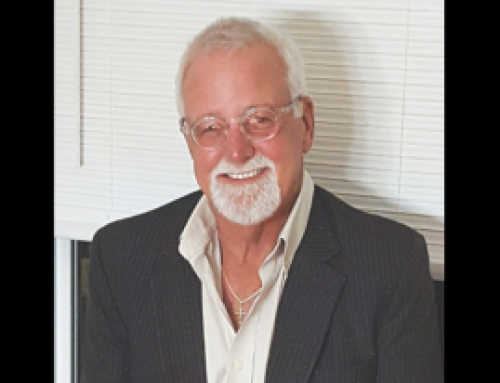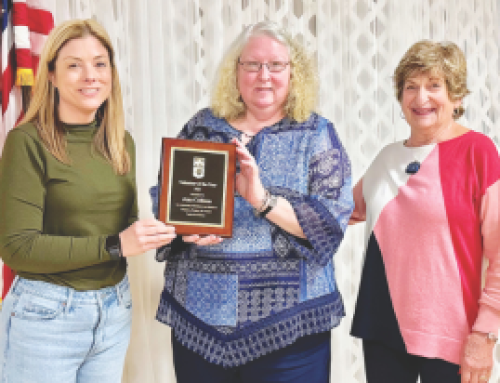The city of Seaford enacted an ordinance that has received both support and criticism.
The ordinance which was approved by a 3-2 vote last Tuesday will be added to Chapter 8- Morals and Conduct of the City Municipal Code: Article 9, an ordinance relative to abortion to establish a process for the disposition of fetal remains from pregnant women seeking abortion within the city of Seaford.
“This ordinance proposes that they would be handled in a dignified manner. This ordinance is not something new, this is something that has already gone through the court system to the Supreme Court. Many other states are following,” said Mayor David Genshaw.
Mayor Genshaw also reported on questions from the previous City Council meeting including if it would be a financial burden on a woman who chooses abortion and indicated that the local funeral homes informed the city there is no cost to have fetal remains cremated. Additionally, in the event of litigation related to the ordinance Mayor Genshaw stated that a person has stepped up (Genshaw will not say who the person is) and will financially support the city, therefore, it will be no cost to the taxpayer in the case of litigation.
Delaware Attorney General Kathy Jennings sent a letter to City Council five hours prior to the previous meeting and the City Solicitor Dan Griffith informed the council that he reviewed the letter outlining their concerns and date line of events.
Griffith reported while not hearing from the Attorney General’s Office, the city reached out to other attorneys with experience for some ideas on how to improve the ordinance. He stated the city wanted to be proactive in addressing concerns of any language in the ordinance that may be raised by the state of Delaware.
Recommendations and changes were made to the ordinance which include a more definitive statement on a woman’s right to abortion under federal and state law as a constitutional right.
“We know that a woman has a right to an abortion. This ordinance is not intended to impair that at all,” said Griffith.
Griffith identified the Delaware Code provisions that he believes allow the city of Seaford to enact the type of ordinance presented to council. Griffith noted that the city cannot enact anything different from the state. If Delaware would enact a fetal remains law, the city cannot enact something different.
Griffith said if the state had any concerns, these additions would help identify the city’s understanding of the ordinance. The final change/addition to the ordinance is to include miscarriages so that fetal remains are not treated differently than those of abortions.
“Fetal remains from abortions will receive equal protection under the law as those from miscarriages,” he said.
Griffith reviewed the parental revisions which Delaware Code 24Del. C. SS 1783 (1995) and explained the parental notification provisions in the state law for unemancipated minors. Language was added to the ordinance to address state code which is in section C of the ordinance. Finally, Griffith said language was added to clarify that the dignity ordinance is authorized by state law.
The city solicitor also provided a date line of communication with the Attorney General’s Office:
Sept. 28- Reviewed with council based on trends of local and state governments and one trend is to address the dignified disposal of fetal remains. There are 13 states with Dignified Fetal Remains Ordinances. Griffith told the council the U.S. Supreme Court upheld the issue and the constitutionality of the ordinances/laws. There was nothing new or creative and taken from prior laws that were passed and upheld.
Oct. 12- Day of the second reading, letter received from ACLU and Deputy Attorney General asking Council to postpone the vote to provide the state a chance to review the ordinance and requested the city solicitor to provide legal authority to which the city of Seaford has to enact this ordinance. Council unanimously voted to postpone vote on ordinance.
Oct. 14- City solicitor provided the Attorney General’s office with the information requested and outlined the legal authority which was under Seaford’s Home Rule Charter. He emphasized his belief that the authority is within the right of the city, but also that the city is interested in working with the state of Delaware on the ordinance. In the city solicitor’s email to the State Attorney General he wrote “hopeful to engage in a process through which the state will support this ordinance.”
Friday, Dec. 10- Email was received from the state of Delaware stating concerns about the ordinance and that the office would send a detailed letter on Monday, Dec. 13.
Tuesday, Dec. 14- The city received a letter from the Deputy Attorney General’s Office which was forwarded to each council member and the mayor. The letter outlines the objections that the state of Delaware has to the ordinance. Griffith informed the council that the timeliness of the letter did not allow him to send a response prior to the meeting.
The letter received was highlighted with the following objections:
“The law on this issue is clear when it comes to the relationship between municipality and the state. That is, if a state has weighed in on an issue; municipality can enact ordinances that are covered by that state law but cannot be inconsistent with that state law.”
“Any objection by the state to this proposed ordinance must do two things: 1. Has to identify a state law that covers this area, 2. Identify an area of the ordinance that contradicts that state law.”
1. The authority to regulate the disposal of medical waste is vested in DNREC and “all pathological waste must be incinerated, cremated, or interred in accordance with 24 Delaware Code 31”.
Griffith said the Dignity Ordinance provides for the disposal by cremation or burial. “I don’t believe there is any inconsistency with what this ordinance provides and what the state law provides in this instance,” he said.
2. The Division of Public Health regulates the disposal of human remains and within the letter is a definition of a dead body. Griffith said it is very clear in the letter the definition of a dead body does not include an aborted fetus. Under state law, abortions are permitted up until viability of the fetus commonly from 20 -23 weeks. A dead body is defined as any human dead body including any products of human conception expelled weighing 350 grams or more or after 20 weeks of gestation. Griffith pointed out the fetal remains addressed in this ordinance are not a dead body as defined by the Division of Public Health. There is a state law that addresses this area but the ordinance is not inconsistent with the provision, in his opinon.
3. Medical facilities are regulated by the Department of Health and Social Services and Division of Health Care Quality. The provision in the ordinance limits facilities from providing beds or other accommodations for the stay of a patient which exceeds 12 hours in duration.
Griffith said the state is silent on that, meaning there is no state law that addresses that particular provision. The concern listed indicates the ordinance imposes an additional requirement on a hospital facility. Griffith said it is permissible to add requirements as long as they are not inconsistent with the state.
4. Inconsistency in the requirement that was added in the new language that parental notification is required for unemancipated minors. Griffith said the notification that is required for an abortion by an unemancipated minor is now also required for the disposal. Griffith told the council the state statute was used for this outline, therefore although it is an additional requirement, he believes it is not inconsistent with the state.
The letter also indicated that the state believes the ordinance to be unconstitutional. “In our view constitutionality of an ordinance like this has been upheld in the Supreme Court,” said Griffith.
Councilman James King said he questions the legality of the ordinance and inquired about the commonality to the state of Indiana. Griffith agreed that much of Seaford’s ordinance is mimicked from Indiana. Councilman King pointed out that the reason it was upheld in Indiana is because the state did not have a disposal law in place, which allowed the city to enact the ordinance.
Griffith answered that he is not in agreement with the statement. “The state has an ordinance that applies to medical waste and pathological waste which includes fetal remains. Under the current state law fetal remains are considered pathological waste,” he said.
In Delaware, pathological waste must be disposed of incineration, cremation, or interment. The state has a provision that provides for the disposal of pathological waste which includes fetal remains,” said Griffith.
“The matter not being overturned in the Supreme Court may have caused the belief that a similar ordinance in Delaware would withstand a similar challenge,” King said.
Councilman King said Delaware, unlike Indiana, does have a statute regarding the disposal of fetal remains, which means no town or city may supersede the state statute.
Griffith said his belief is that the state of Delaware has not enacted (however may do so) a law on the disposal of fetal remains.
“This is not a threat, there is going to be litigation. If this passes tonight the state is pretty firm in saying there is going to be legal action,” said King, who questioned the cost of litigation, adding that he believes it needs to be handled on the state level and not by the city, which has limited resources.
“Do you feel such as it is that five hours to review a five page document from the Department of Justice is enough time for you to make an informed decision?” Councilman Dan Henderson asked Griffith.
Griffith said he had about two hours but said he does not think his position would change. He said he believes this is more an ideological debate as opposed to a legal one. Councilman Henderson remarked that it is borderline unprofessional to give five hours’ notice on this important matter.
Councilman Jose Santos said he felt the ordinance is also based on ideology and that everyone believes life begins at different points based on different beliefs.
“I never signed up to be a political weapon for a religion. I believe we have a First Amendment right that we must protect,” said Santos, who added that he is concerned that the ordinance “chips away” at that right.
Motions on the ordinance also included statements from councilmen:
Matt MacCoy: Yes: “I believe the fetal remains deserve a dignified handling. I believe this is the right thing to do and I believe our community has vocalized this to us.”
Orlando Holland: Yes: “With due respect, human remains should be properly and decently disposed of.”
Henderson: Yes: “It betrays my libertarian instincts to enact ordinances that cause division, however, this situation has forced a decision. We as a society do this (for the remains) even for the most heinous criminals who we execute in our prisons.”
Santos: No: “I think it is governmental overreach.”
King: No- “This decision should be made at a different level than us and I think this is going to create some financial hardships for the taxpayers.”
Attorney General statements on social media following the Council’s passage of the ordinance:
“Last night, Seaford City Council narrowly passed an anti-choice ordinance despite written notice that they were in flagrant violation of state law, constitutional precedent, and established fundamental rights. I am left with no choice but to do exactly what the councilmen were warned of: sue one of our own cities on behalf of the people of our state. And in the end, this ordinance’s inevitably short life span will accomplish nothing other than a colossal waste of taxpayer money.”





